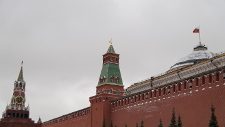Central Asia

Following several hundred years of relative isolation, Central Asia has re-emerged as an important region on the international scene. Its importance derives from its strategic location astride the main economic and political centers of the Eurasian continent. While this location poses significant challenges to the landlocked states of the region, it also presents opportunities for them and their neighbors, including the gradual re-emergence of land trade and transportation routes connecting Europe and Asia. ISDP uses a historical definition of Central Asia that goes beyond the five countries of Soviet Central Asia – Kazakhstan, Kyrgyzstan, Tajikistan, Turkmenistan and Uzbekistan – to also include Afghanistan and China’s Xinjiang-Uighur Autonomous Region.
ISDP’s activities on Central Asia, conducted within the framework of the Joint Center with the Central Asia-Caucasus Institute in Washington, D.C., focus on research and analysis of the political development and regional security in the region, Central Asia’s relations with the EU and U.S., as well as the increase in continental trade and transport. The Joint Center publishes the biweekly Central Asia-Caucasus Analyst, a leading sources of analysis on regional developments.
Related News
Related Publications
-
The Limitations of India and Russia’s Transactional Relationship
Since Russia’s unprovoked invasion of Ukraine in February 2022, it might seem as though ties between India and Russia have strengthened. While much of the West isolated Russia, India-Russia energy […]
-
IN DEFENSE OF THE LIBERAL INTERNATIONAL ORDER
In recent years, the geopolitical fight for global economic, diplomatic, and institutional control has acutely intensified, accentuating the crisis in the existing post-World War II Liberal International Order (LIO), championed […]
-
ISDP Annual Report 2023
ISDP’s Annual Report for the year 2023. We look back on 2023, a year in which tensions and conflicts captured the strategic space in ISDP’s focus areas, making headlines around […]
-
Sino-Russian Relations, From Where – To Where
Since 1949, relations between the Soviet Union/Russia and China have been oscillating between formal military alliances and military border clashes. In the early phases, the cooperation was beneficial for both […]
-
Experts’ Scenarios on Russia’s Future
What does Russia’s future hold? Of course, we don’t know. For a century determinists of various persuasions claimed to be able to predict future developments. They believed that very few […]




